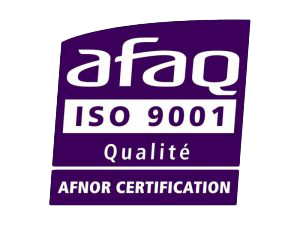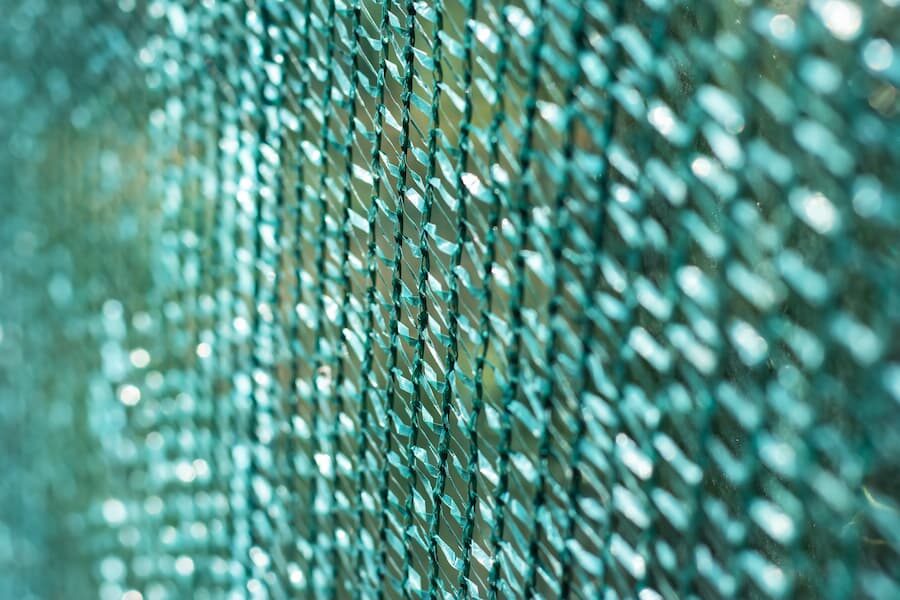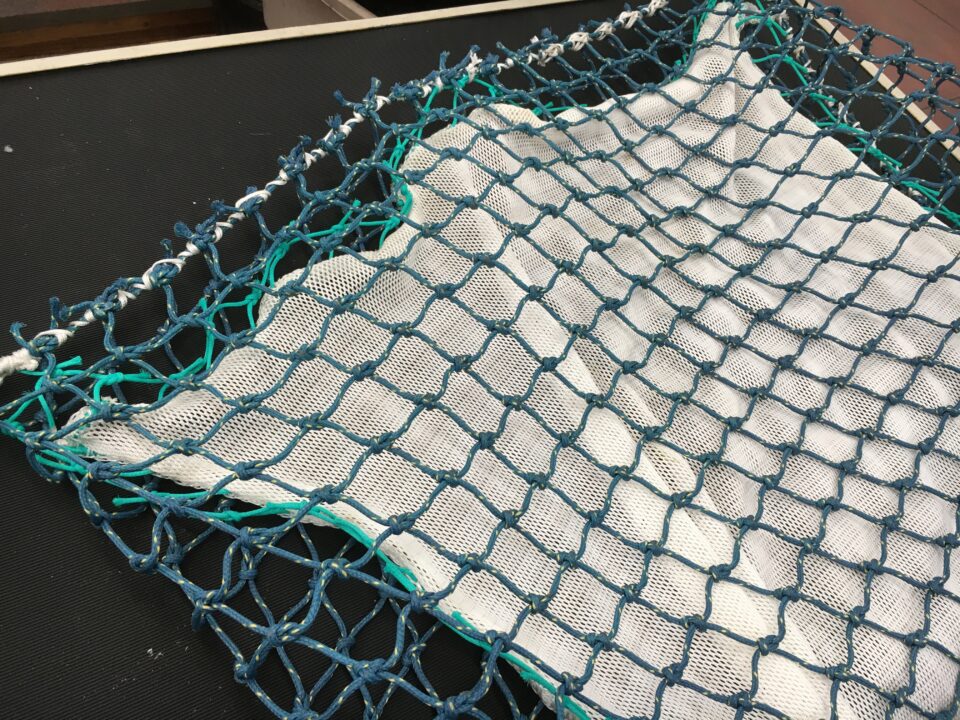Le projet HYBA vise à diminuer la consommation de carburant des navires existants. Il propose une solution de motorisation hybride adaptable à des navires neufs mais aussi à des navires déjà en activité.
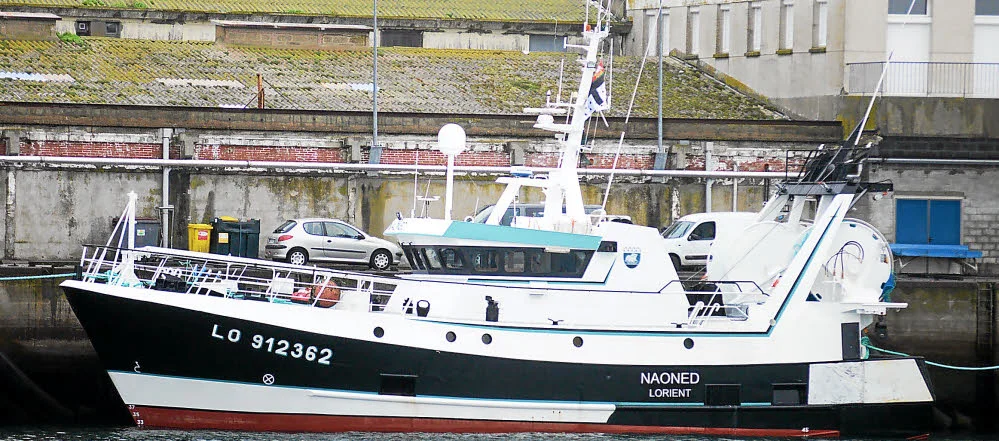
Face à des évènements économiques mondiaux et non maitrisables, la filière pêche ne peut se contenter d’espérer un apaisement du marché du pétrole. Elle s’est donc lancée dans une course contre la montre pour limiter dans l’avenir la dépendance du secteur vis à vis des énergies fossiles. La transition énergétique n’est plus un vœu pieux pour la filière, c’est devenu une nécessité absolue. La marine marchande s’est déjà engagée dans cette voie mais la pêche ne bénéficie pas de son potentiel industriel et financier. Le secteur aura de grandes difficultés à faire la transition seul.
Outre le défi technologique, la filière risque à moyen terme de se voir fixer de objectifs en matière de décarbonation et la fiscalité avantageuse dont elle bénéficie pour les raisons évoquées pourrait être progressivement limitée voire supprimée dans le cadre des négociations de l’OMC.
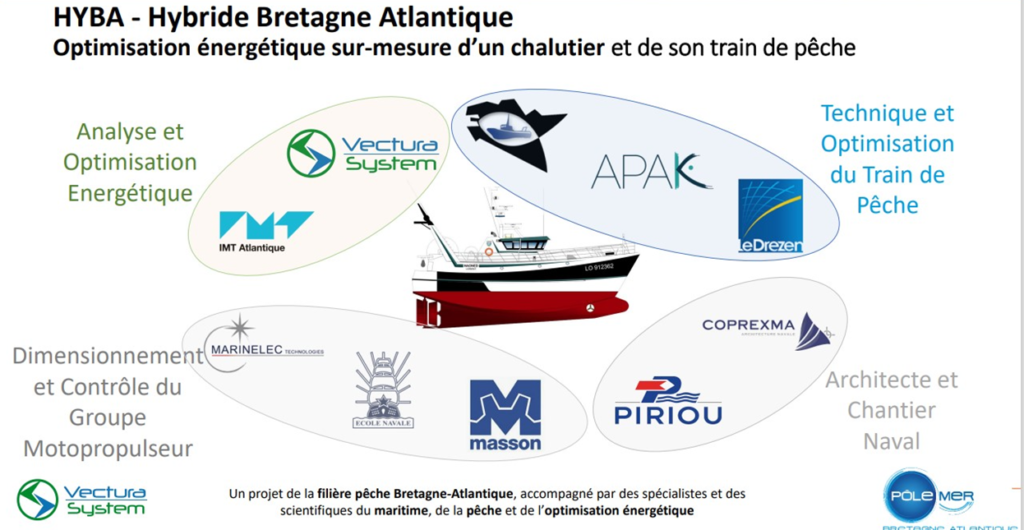
La transition énergétique nécessite beaucoup de temps. Dans l’intervalle, des solutions techniques intermédiaires
doivent être encouragées : modernisation de la flotte, développement d’alternatives au gazole, investissement massif dans l’innovation et la valorisation des productions pour compenser le prix des carburants… La transition vers une motorisation non carbonée nécessite le développement et l’expérimentation de solutions techniques innovantes pour la plupart en devenir. Toutefois, sur ce sujet, les chefs mécaniciens des navires de pêche ont une certitude : il faudra plus de place à bord des navires pour accueillir cette nouvelle génération de moteur. Cela passera par un renouvellement quasi complet de la flotte et la suppression de la limitation de jauge par la Politique Commune des Pêches. Là encore, le renouvellement de l’intégralité de la flotte n’est pas envisageable sur un court terme.
Le projet HYBA vise à diminuer la consommation de carburant des navires existants. Il propose une solution de motorisation hybride adaptable à des navires neufs mais aussi à des navires déjà en activité. La technologie proposée existe déjà dans le domaine automobile. Il s’agit par ce programme de l’adapter à un navire de pêche. Il demande peu de place supplémentaire à bord et limite donc les problèmes d’augmentation de jauge (limitée par la réglementation européenne) européenne). Par ailleurs, le projet porte également sur l’optimisation du train de pêche. Il est à souligner que le projet est conçu pour être facilement transférable grâce à l’utilisation de l’intelligence artificielle.
Le projet est prévu en 2 phases : Etude de faisabilité / Réalisation. L’étude de faisabilité portera sur l’instrumentation et l’analyse énergétique, l’optimisation du chalut et une étude des conséquences en termes de stabilité et d’architecture suite à la nouvelle motorisation. A l’issue de cette phase, plusieurs solutions seront proposées. Celles ci seront chiffrées et les gains énergétiques évalués. Par ailleurs, les données de consommation énergétique du navire seront bancarisées et valorisées dans la perspective d’une information de la filière ou pour d’autres projets de décarbonation . Au terme de la phase 1, et sous réserve que les gains énergétiques soient réels et les travaux d’adaptation économiquement viables, la phase 2 sera lancée. Celle ci portera sur le développement et l’intégration des solutions proposées en phase 1.
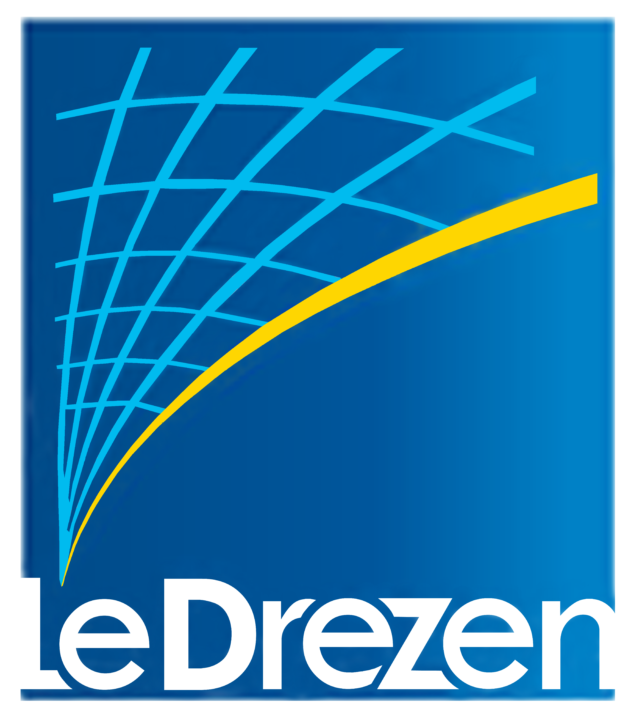
Un projet partenarial réunissant les acteurs majeurs de la filière
Convaincue par l’intérêt de cette technologie adaptée aux navires de pêche, le projet HYBA fait l’objet d’un consortium réunissant Vectura System (spécialiste de l’hybridation dans l’industrie automobile) et des acteurs majeurs de la pêche et du maritime : CRPMEM de Bretagne, Armement APAK SCAPAK, PIRIOU (chantier naval), MARINELEC (équipementier électronique), LE DREZEN (Engins de pêche), COPREXMA (architecture navale), de pêche), COPREXMA (architecture navale), MASSON (réducteur), IMT Atlantique (expertise scientifique dans le traitement des données), Ecole NAVALE (Intelligence artificielle, propulsion).(Intelligence artificielle, propulsion). Ce projet innovant a été labelisé par le Pôle Mer Bretagne et vient de faire l’objet d’un financement par France Filière Pêche.


